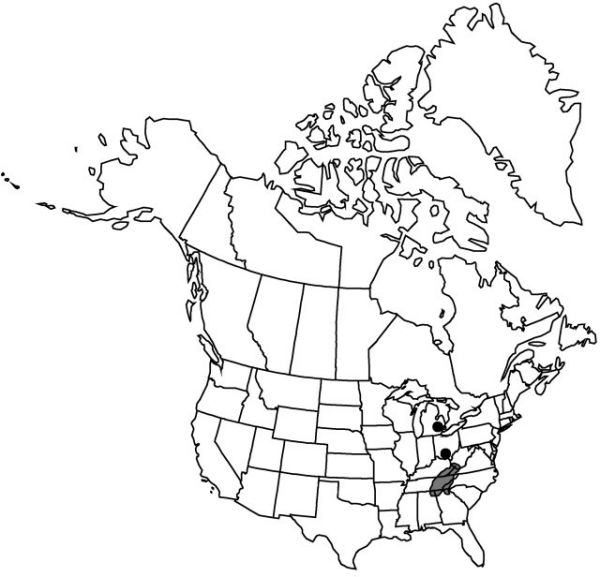Difference between revisions of "Prosartes maculata"
Fl. New York 2: 321. 1843.
imported>Volume Importer |
TammyCharron (talk | contribs) |
||
| (One intermediate revision by one other user not shown) | |||
| Line 1: | Line 1: | ||
{{Treatment/ID | {{Treatment/ID | ||
|accepted_name=Prosartes maculata | |accepted_name=Prosartes maculata | ||
| − | |accepted_authority=(Buckley) A. Gray | + | |accepted_authority=(Buckley) Torrey & A. Gray in J. Torrey |
|publications={{Treatment/Publication | |publications={{Treatment/Publication | ||
| − | |title= | + | |title=Fl. New York |
| − | |place= | + | |place=2: 321. 1843 |
| − | |year= | + | |year=1843 |
}} | }} | ||
|common_names=Nodding mandarin | |common_names=Nodding mandarin | ||
| Line 55: | Line 55: | ||
-->{{#Taxon: | -->{{#Taxon: | ||
name=Prosartes maculata | name=Prosartes maculata | ||
| − | |authority=(Buckley) A. Gray | + | |authority=(Buckley) Torrey & A. Gray in J. Torrey |
|rank=species | |rank=species | ||
|parent rank=genus | |parent rank=genus | ||
| Line 66: | Line 66: | ||
|distribution=Ala.;Ga.;Ky.;Mich.;N.C.;Ohio;Tenn.;Va.;W.Va. | |distribution=Ala.;Ga.;Ky.;Mich.;N.C.;Ohio;Tenn.;Va.;W.Va. | ||
|reference=None | |reference=None | ||
| − | |publication title= | + | |publication title=Fl. New York |
| − | |publication year= | + | |publication year=1843 |
|special status=Endemic | |special status=Endemic | ||
| − | |source xml=https:// | + | |source xml=https://bitbucket.org/aafc-mbb/fna-data-curation/src/2e0870ddd59836b60bcf96646a41e87ea5a5943a/coarse_grained_fna_xml/V26/V26_230.xml |
|genus=Prosartes | |genus=Prosartes | ||
|species=Prosartes maculata | |species=Prosartes maculata | ||
Latest revision as of 15:22, 27 September 2021
Plants 3–8 dm, glabrescent with age. Stems sparingly branched. Leaves 4–15 × 2–4 cm; blade ovate to lanceolate, rounded to subcordate basally, abaxial surface veins and margins pubescent, hairs scattered, flattened, apex sharply acuminate, with (3–)5 prominent veins. Flowers 1–3(–4); perianth broadly campanulate; tepals creamy white spotted with purple, ovate-lanceolate, abruptly narrowly clawed basally, 15–25 mm, apex acuminate; stamens exserted; filaments filiform, 15–20 mm; anthers 3–6 mm; ovary obconic to obpyriform, becoming 3-lobed after anthesis, papillose with ascending, stellate glandular hairs, ovules 2–4 per locule, horizontal; style 1.4–2.3 cm, glabrous; stigma 3-lobed. Berries pale straw-colored, 3-lobed, 6–10-seeded, 10–15 mm, papillose with stellate hairs arising from papillae; lobes subglobose. Seeds 4 mm. 2n = 12.
Phenology: Flowering early–late spring.
Habitat: Rich, moist, deciduous woods, slopes and ravines
Elevation: 100–800 m
Distribution

Ala., Ga., Ky., Mich., N.C., Ohio, Tenn., Va., W.Va.
Discussion
This rare old-forest obligate is readily distinguished by its purple-spotted, clawed tepals and its three-lobed, straw-colored, hairy-papillose fruit (R. G. Johnson 1968).
Selected References
None.